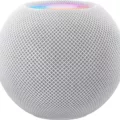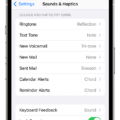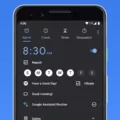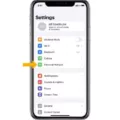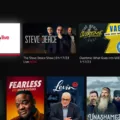The rise of mobile technology has brought a new level of convenience to our daily lives. One of the most useful innovations in this area is the mobile hotspot device, also known as a Jetpack. A Jetpack is a small, portable device that allows you to connect multiple devices to the internet via Wi-Fi, making it an ideal solution for people who need internet access while on the go or in areas where traditional wired internet is not available.
But did you know that you can also use a Jetpack for your home internet? It’s true! With a Jetpack, you can enjoy a reliable and fast internet connection without the need for extensive equipment or installation. This is especially useful for people who live in areas where wired internet is not available or for those who are looking for a more portable and flexible option than traditional home internet.
Using a Jetpack for home internet is easy. Simply turn on the device and connect your devices to it via Wi-Fi. You can connect multiple devices at once, including laptops, smartphones, and tablets. This makes it a great option for families or small businesses that need to connect multiple devices to the internet at the same time.
One thing to keep in mind when using a Jetpack for home internet is that it does have some limitations. For example, while a Jetpack can provide fast internet speeds, it may not be as fast as traditional wired internet in some cases. Additionally, you may experience slower connection speeds after you reach a certain usage limit with your Jetpack. This is because many Jetpack plans have data caps or limits, which can slow down your connection speed once you reach them.
However, there are options available for those who need unlimited high-speed data. For example, a UDP (prepaid unlimited data plan) can be activated on a Jetpack, which will allow you to use unlimited high-speed data that you can connect other devices to over the Jetpack’s Wi-Fi network. This is a great option for people who need to use a lot of data for work or entertainment purposes.
In terms of cost, using a Jetpack for home internet can be a cost-effective option for some people. For example, if you already have other Verizon prepaid phones or Jetpack lines, you can add a Jetpack line for just $55/month with the multi-line discount. This can be a more affordable option than traditional home internet plans, especially if you don’t need a lot of data or if you are only using the internet for basic tasks like email and web browsing.
A Jetpack can be a convenient and portable option for home internet. While it may not be as fast or reliable as traditional wired internet in some cases, it can be a great option for people who need flexibility and portability in their internet access. By understanding the limitations and options available with a Jetpack, you can make an informed decision about whether it is the right choice for your home internet needs.
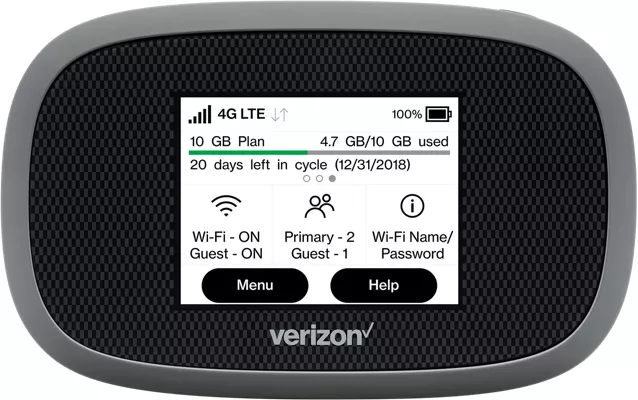
Using a Jetpack for Home Internet
It is possible to use a Verizon Jetpack for home internet. The Verizon Jetpack is a portable Wi-Fi hotspot that allows you to connect multiple devices to the internet over a cellular network. You can use the Jetpack to provide internet access to your home devices, such as smartphones, tablets, laptops, and smart TVs, as long as they are within range of the Jetpack’s Wi-Fi signal.
However, it’s worth noting that the Jetpack has certain limitations when used as a home internet solution. For example, the Jetpack does not have ethernet ports, which means you cannot connect devices directly using a wired connection. Instead, you must connect devices wirelessly over Wi-Fi.
Additionally, the Jetpack’s internet speeds may be slower than a traditional home internet connection, especially if you are using it to connect multiple devices simultaneously. Also, after you reach a certain usage limit, your connection speeds may be reduced due to network congestion or data throttling.
Despite these limitations, the Jetpack can be a useful solution for those who live in areas with limited or no access to traditional home internet services. You can also consider using a Jetpack as a backup internet connection in case your primary connection goes down.
The Benefits of Using a Jetpack for the Internet
A Jetpack is a portable device that provides internet connectivity through cellular networks. It allows multiple devices such as laptops, smartphones, and tablets to connect to the internet simultaneously, making it a convenient option for individuals and families on the go. Jetpacks can provide fast, reliable internet speeds where coverage is available, making it an excellent choice for remote workers, travelers, and anyone in need of internet access outside of their home or office. Jetpacks are easy to use, and they typically come with a rechargeable battery, making them a versatile and reliable option for staying connected while on the move.
Does Verizon Jetpack Offer Unlimited Data?
Verizon Jetpack offers an unlimited data plan called pUDP (prepaid unlimited data plan) which provides unlimited high-speed data for the Jetpack device. This means that you can use as much data as you want without worrying about any data caps or overage charges. Additionally, you can connect other devices to the Jetpack’s Wi-Fi network and use unlimited data for those devices as well. It is important to note that the pUDP plan is only available for prepaid customers and there may be certain restrictions and limitations that apply. if you are looking for a reliable and convenient way to access unlimited data on the go, the Verizon Jetpack pUDP plan might be a suitable option for you.
Difference Between Jetpack and Hotspot
A Jetpack is a type of mobile hotspot device that is sold by Verizon for use on their network. On the other hand, a hotspot is a more general term that refers to any device that creates a Wi-Fi network that multiple devices can connect to for internet access.
One key difference between a Jetpack and a hotspot is that a Jetpack is a specific brand and model of mobile hotspot device, while a hotspot can refer to any device that provides a Wi-Fi network for internet access. Additionally, Jetpacks are typically sold by Verizon and are designed to work specifically on their network, while hotspots can be used with any compatible cellular network or even with a wired internet connection.
Another difference between Jetpacks and hotspots is that Jetpacks are often more advanced and feature-rich than generic hotspots. For example, Jetpacks may offer faster speeds, longer battery life, and more advanced security features than other mobile hotspot devices.
While a Jetpack is a specific brand and model of mobile hotspot device sold by Verizon, a hotspot is a more general term that can refer to any device that creates a Wi-Fi network for internet access. Jetpacks are often more advanced and feature-rich than other mobile hotspot devices, but may only work on Verizon’s network.
Conclusion
A Verizon Jetpack can be a great option for home internet, especially if you live in an area with good coverage. With the ability to simultaneously connect multiple devices over Wi-Fi, a Jetpack can provide a more robust and portable alternative to a traditional home network system. However, it’s important to note that the Jetpack cannot be used with ethernet ports and you may experience slower connection speeds after reaching a certain usage limit. Additionally, activating a pUDP on a Jetpack can provide unlimited high-speed data for other devices to connect to. a Jetpack can be a convenient and reliable option for those in need of internet on the go or in areas where traditional broadband options are limited.

